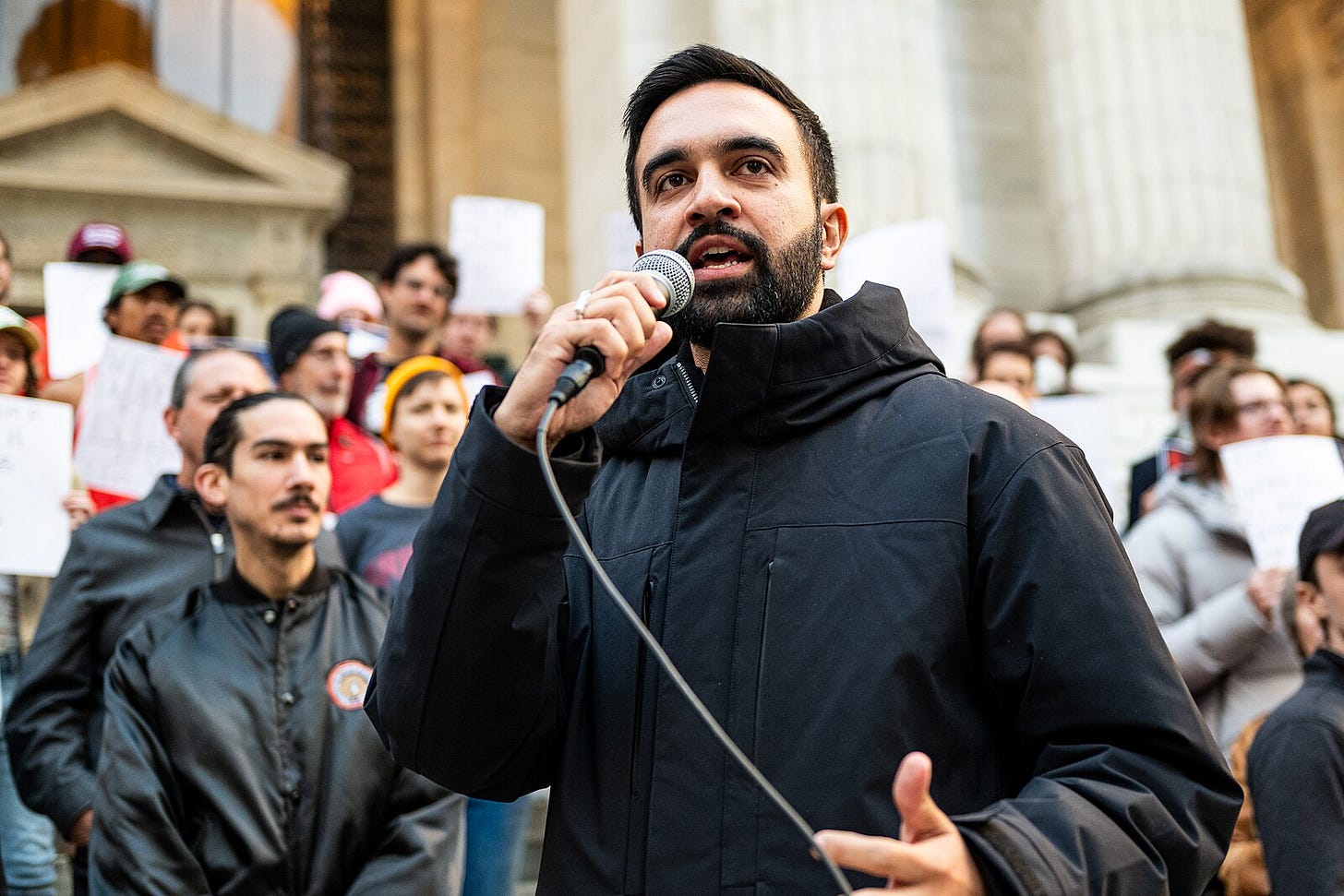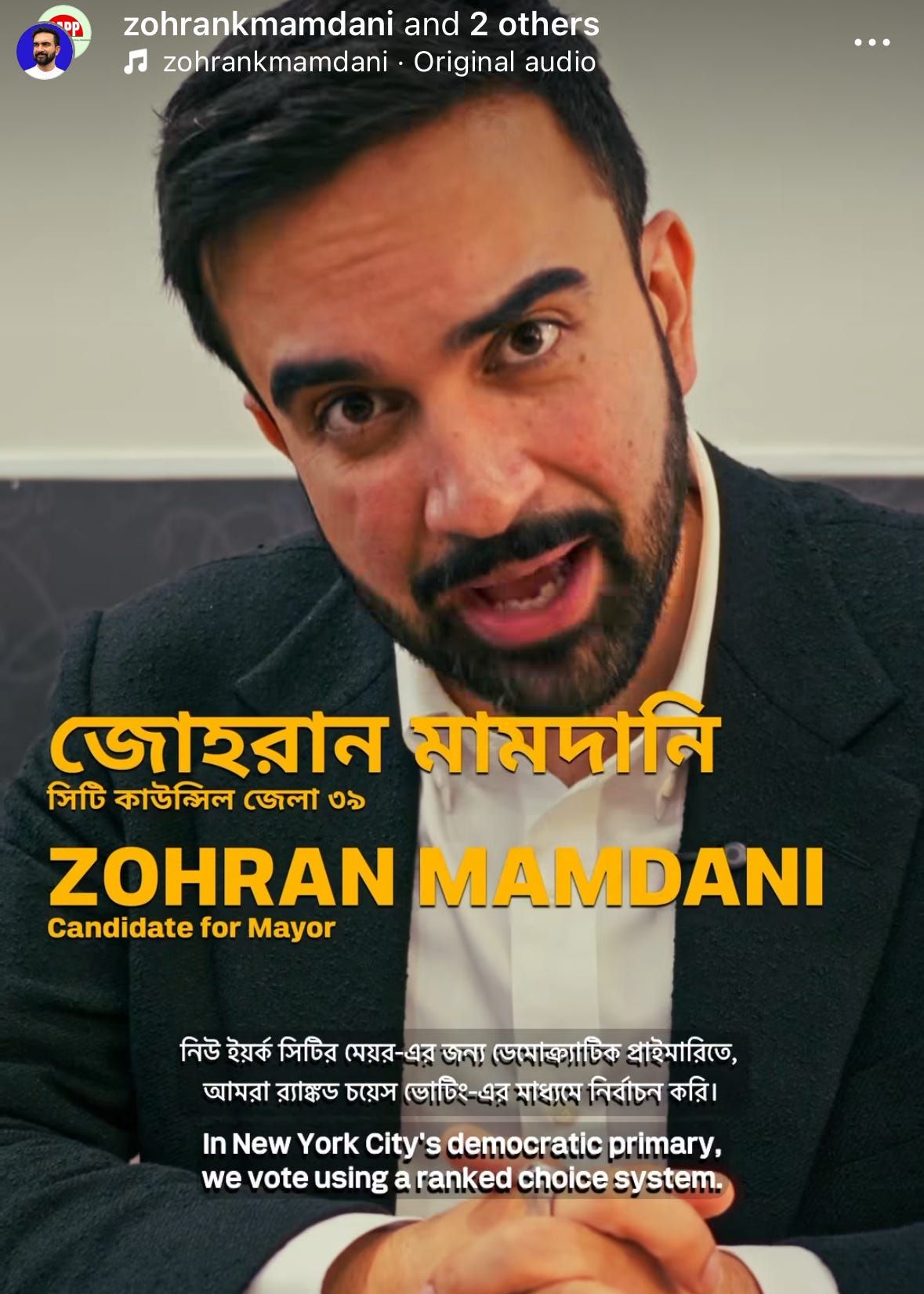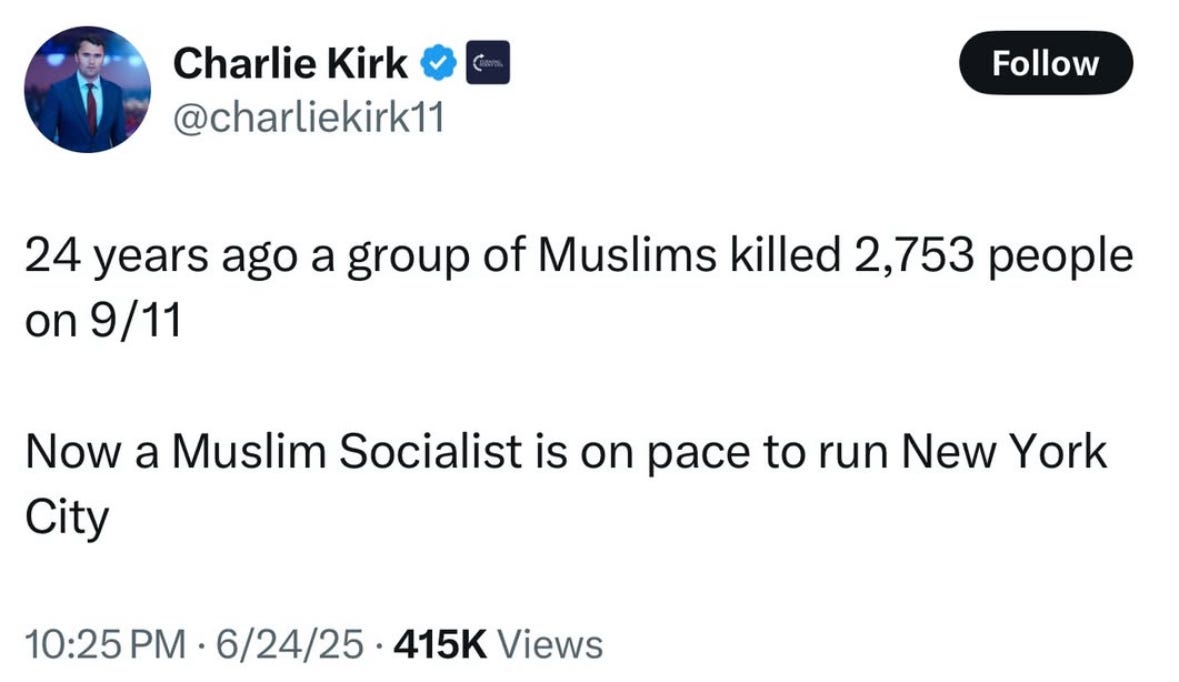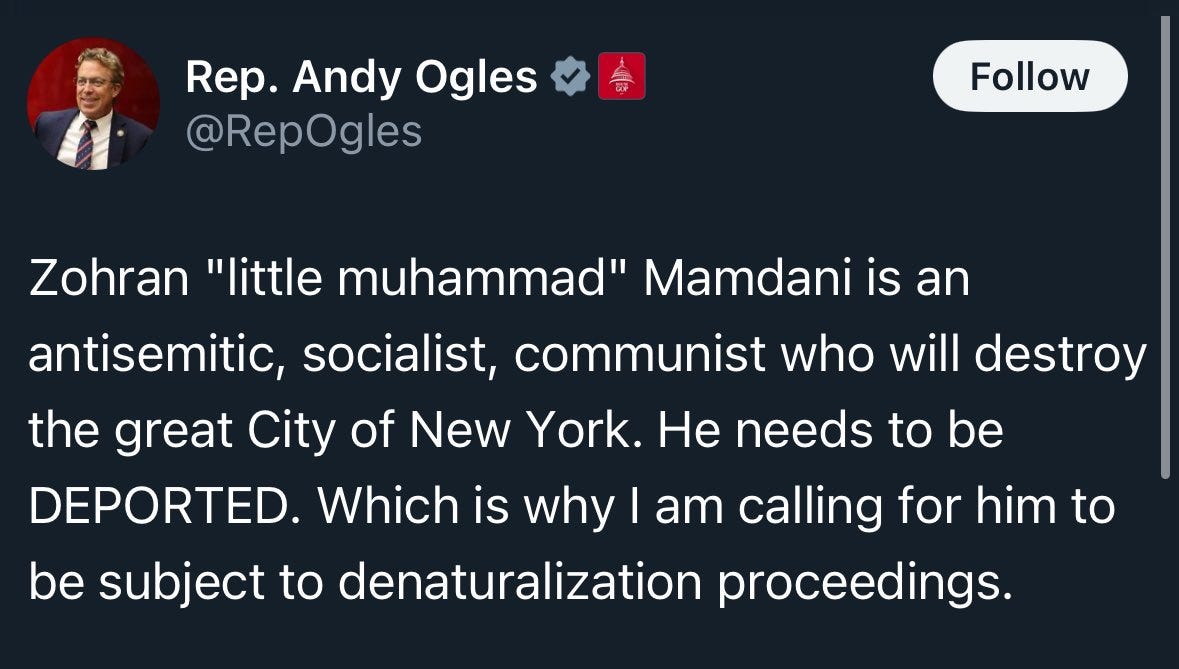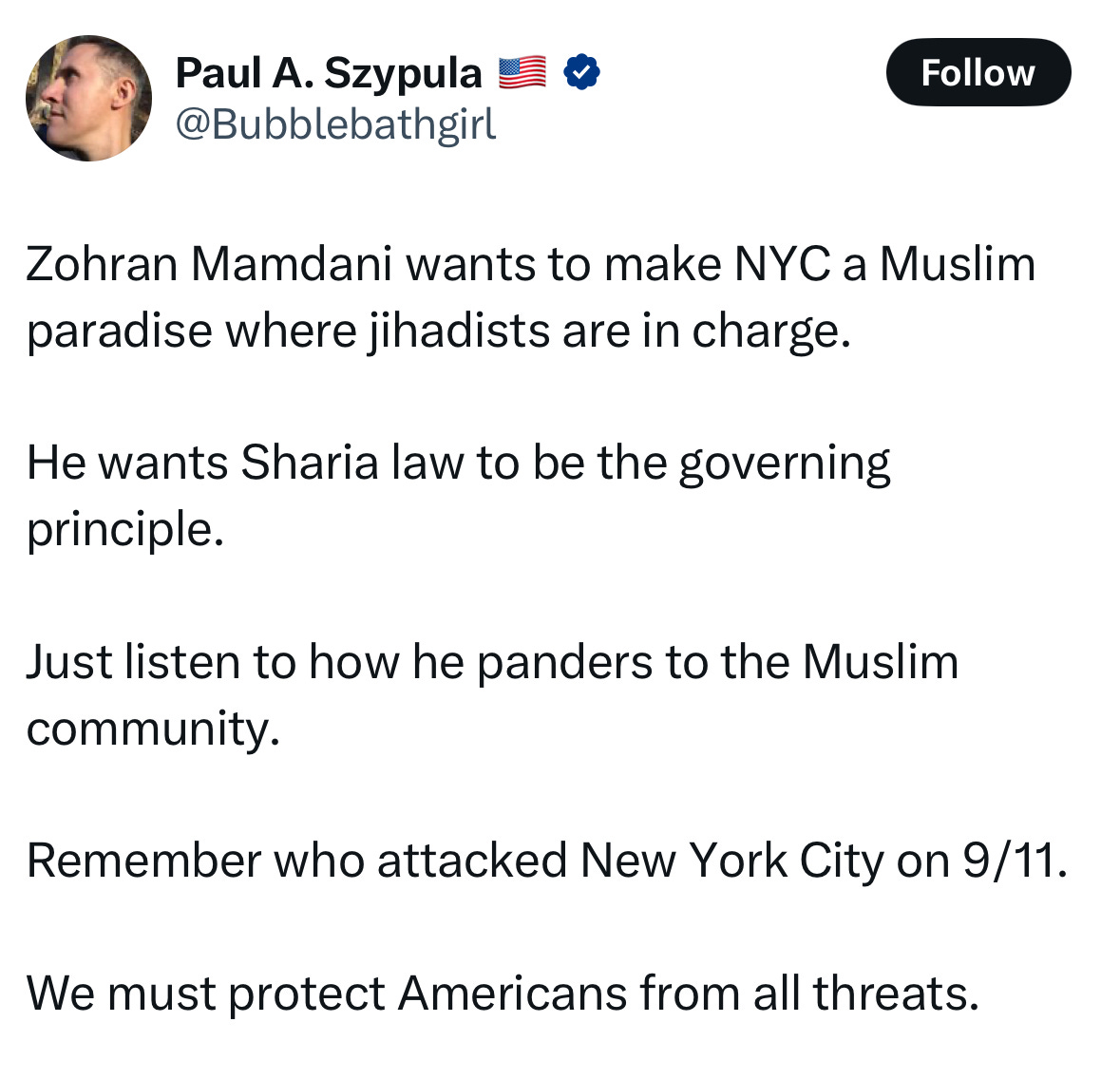Zohran Mamdani’s candidacy is historic, but the Islamophobia he continues to face is all too common and dangerous.
A reflection on Mamdani's historical victory from our South Asian, Muslim founder
OPINION—Growing up in a Pakistani, Muslim household in the U.S., you often don’t get to see people who look like you in positions of power.
The people who are in those leadership roles typically hide their culture and identity, “Americanizing” their names and never mentioning the richness of South Asian history as a source of strength. Others give up the dream of holding these leadership positions because it’s not something a typical “desi kid” would do.
That’s why Zohran Mamdani, an Indian-Ugandan Muslim winning the Democratic primary for New York City Mayor, means so much to the South Asian community, especially to me, as one of the very few South Asian, Muslim editors-in-chief of a local and national news outlet in this country.
I first felt this feeling when my mother called me the day after his election. My mother, whom I would have thought would be the last person closely watching this race, told me, “It’s crazy a Muslim won the election. He looks exactly like you and your brothers. He loves Bollywood. This could have been you.”
Her comment touched my heart.
Watching my parents face the repercussions of being Muslim after 9/11 was one of the most traumatizing parts of my life, something I experienced myself daily in school, from being forced to watch documentaries about the ‘threat of Islam’ to being called a sleeper cell by school bullies. But to see Mamdani defy all odds, winning a primary election many pundits believed he wouldn’t win, while using his love of Bollywood and culture, was a glimmer of hope to defy those stereotypes.
Yet, making history also comes with echoes of the past, including people who try to tear down anyone who breaks the glass ceiling.
Since his election, Mamdani has faced relentless scrutiny from political pundits and lawmakers on both sides, who have used his Muslim and South Asian background as a weapon to claim he is unfit for office. From being called a terrorist to being labeled an Islamist, from connecting his candidacy to 9/11, to a Republican congressman calling for his deportation, the focus on his religion instead of his policies is truly dangerous to our country and democracy.
Mamdani also told news outlets that he has received death threats, with some comments saying, “the only good Muslim is a dead Muslim.” This comes as Islamophobia has been on the rise in recent years, according to the Council on Islamic Relations. In fact, I have also received similar threats on our social media pages.
These hateful comments are a reminder of why we need representation in leadership, especially from those who embrace their culture. Just recently, Mamdani was scrutinized for eating biryani—a popular South Asian dish—with his hands, something I have done and something my parents, who are Pakistani immigrants, often do as well. He was called “barbaric” and “un-American” online for doing this, with people not taking the time to understand the cultural aspects behind it.
It is a clear example of why we need people of different backgrounds in positions of power: to expose Americans to new stories, new cultures, new perspectives, and new insights into the diversity of our country.
That is exactly why my work, and the perspective I bring as a Muslim editor-in-chief, is important. These stories matter now more than ever, as both direct and indirect attacks on Muslims continue across the country with very little media coverage. This is why I continue my work as a journalist, to shine a light on stories from my community that are often scraped and ignored.
Zohran Mamdani’s election proves we are moving away from a time when someone’s religion determined their candidacy, even as some try to drag us back to the past. But this history is important because it defines the stories and struggles of South Asian and Muslim Americans across the country.
It reminds us of where we come from and how far we have come.
It reminds us not to use the same language as the oppressors.
It reminds us why we must keep going.
And, more importantly, it reminds the little Pakistani kid that his dreams are achieveable.
With love,
Rahim Jessani
Founder and editor in chief, BUM
.


